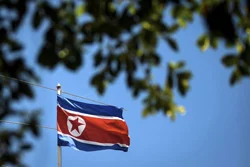PETALING JAYA: North Korea’s baseless accusations against Malaysia are an unwise move that will alienate the reclusive country from one of its crucial allies in this region, say foreign policy experts.
Malaysia has been a North Korean ally since 1973, quietly hosting semi-official “Track 2” diplomatic talks between North Korea and the United States on Pyongyang’s nuclear programme.
Last October, Malaysia again became the venue for a series of such unofficial talks in the absence of any official contact between Washington and Pyongyang.
Institute of Strategic and International Studies Malaysia (ISIS) senior analyst Shahriman Lockman said the relationship was a way to signal that Malaysia had an independent foreign policy to prove its non-aligned credentials during the Cold War.
“It was a way of saying, ‘Look, we are not going to choose our friends on the basis of whether they’re approved by the West.’
“United Nations sanctions against North Korea, in particular the UN Security Council Resolution 2270, have been crippling.
“Who would want to do business with North Korea if it risks being included in the list of items under sanction,” he said when contacted.
Shahriman believes that North Korea realises this and that alienating Malaysia would also mean closing the doors to other South-East Asian countries.
“After all, for every RM50,000 we trade with the outside world, only RM1 is traded with North Korea,” he said.
Senior fellow and deputy director of Institute of Malaysian and International Studies Association Prof Dr Sufian Jusoh said it is vital for North Korea to see that it will be in their interests to keep Malaysia on their side.
“Not many countries are willing to trade with them especially considering the sanctions imposed.
“They shouldn’t throw all of our goodwill in the drain,” he said.
Oh Ei Sun, principal adviser of Pacific Research Centre, a local think-tank, said it was “very obvious” who was at the losing end of such antics.
“If we indeed break off with North Korea, it is not much of a loss to us but huge to them because we are one of the few countries that still maintain a very low level of economic cooperation with them,” he said.
On the allegations by North Korean Ambassador to Malaysia, Kang Chol, Dr Sufian said the former had “crossed the diplomatic lines”.
“North Korea has to be more diplomatic, follow the rules and respect the laws here,” he said.
Oh cautioned that such allegations would only stonewall the investigation and worsen the relationship between the two nations.
Shahriman believed that Kang could be facing tremendous pressure from the North Korean government.
Asked on the rightful claimant of Kim Jong-nam’s body, analysts said it should be given to the next of kin.
Kang had demanded Malaysia hand over Jong-nam’s body without an autopsy. However, Malaysian authorities however went ahead with a post-mortem.
It was reported that Kang said Jong-nam had a diplomatic passport and was therefore under the consular protection of North Korea.
Shahriman said having a diplomatic passport did not automatically entitle the holder to diplomatic immunity.
“You might get through passport control using a special lane, but unless you’re accredited, you don’t have any special privileges or immunities,” he said.
Dr Sufian said unless the embassy has proof of authority from the next of kin, they have no claims to the body.
“According to our law, the next of kin should claim the body, unless there is a letter of authority from the next of kin, be it the wife, son or even Kim Jong-un, the half brother, given to the embassy to do the necessary,” he said.
Comments by Mr Shahriman Lockman which appeared in The Star, 22 February 2017





